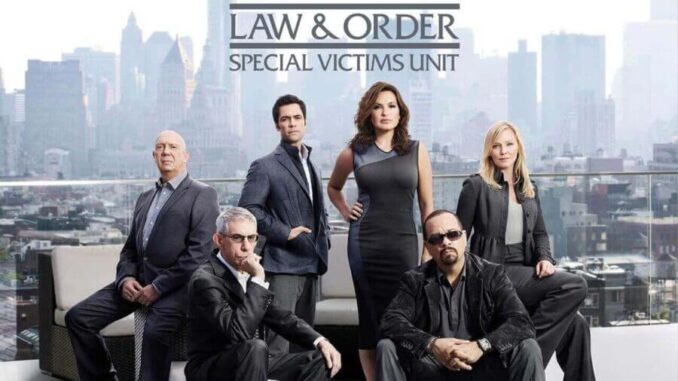
The Enduring Echo: Cast Changes and the Soul of SVU
For over two decades, Law & Order: Special Victims Unit has carved a unique niche in the television landscape, a relentless chronicle of the dark corners of humanity. Beyond its gripping narratives and unflinching gaze, a significant part of its enduring appeal, and indeed its very survival, lies in its remarkable ability to navigate the inevitable ebb and flow of its ensemble cast. Over twenty seasons, the names on the opening credits have shifted like the tides, each departure a tremor, each arrival a fresh ripple. These changes are not merely footnotes in its history; they are illustrative brushstrokes that paint a vivid picture of the show’s resilience, its capacity for reinvention, and its deep-seated commitment to its core mission.
Perhaps no single cast change illustrated the show’s mettle more profoundly than the departure of Detective Elliot Stabler at the end of Season 12. For twelve years, Christopher Meloni’s Stabler was the tempestuous yang to Mariska Hargitay’s empathetic yin, a volatile but protective partner whose righteous fury often mirrored the heinousness of the crimes. His abrupt exit was a seismic event, a moment many fans predicted would spell the end of the series. Yet, SVU not only survived but thrived. This transition illustrated the show’s bedrock strength in Olivia Benson. Suddenly unmoored, Benson was forced to lead, to step out of Stabler’s shadow and fully embody the show’s evolving ethical compass. Her journey from senior detective to sergeant, then lieutenant, and finally captain, became the show’s central narrative arc, demonstrating a profound character evolution that would have been impossible had Stabler remained. The show adapted, shifting its focus slightly from a two-hander dynamic to a more ensemble-driven approach anchored by Benson’s unwavering moral center.
Beyond the monumental shift of Stabler’s exit, the revolving door of supporting characters further illustrates the show’s ability to maintain its procedural core while injecting fresh perspectives. The District Attorney’s office, a vital component of the “Law” in “Law & Order,” has seen a parade of formidable legal minds. From the passionate but often embattled Alexandra Cabot and Casey Novak, through the charismatic and ethically nuanced Rafael Barba, to the more stoic Peter Stone and the transition of detective Dominick Carisi into an ADA, each prosecutor brought a distinct legal philosophy and a new dynamic to the courtroom. Barba, in particular, became a fan favorite, his sharp wit and unwavering advocacy illustrating the intellectual sparring necessary to navigate the complexities of justice. Their departures, often fraught with personal and professional dilemmas, underscored the human cost of working within a flawed legal system, even as their replacements ensured the legal battles remained compelling.
Similarly, the leadership roles have consistently cycled. Captain Donald Cragen, a gruff but beloved figure, provided an essential paternal anchor for over a decade. His retirement illustrated the natural progression of a police force, making way for a series of new commanding officers like Chief William Dodds, Deputy Chief William Dodds Jr., Deputy Chief Christian Garland, and eventually Olivia Benson herself. Each new leader brought different management styles, personal challenges, and external pressures, reflecting the ever-changing face of police administration and illustrating the systemic challenges faced by those striving for justice from above.
Amidst this constant flux, the longevity of certain secondary characters illustrates the quiet power of consistency. Ice-T’s Fin Tutuola, initially a skeptical and sardonic outsider, evolved into a loyal, street-smart veteran whose dry humor and pragmatic wisdom provided much-needed grounding. Similarly, Tamara Tunie’s Dr. Melinda Warner, the stoic and methodical medical examiner, was a reassuring constant for many seasons, her unwavering scientific expertise illustrating the factual anchors required in a show dealing with often gruesome realities. Their enduring presence allowed the audience to find familiar faces and voices even as new detectives joined the squad, like Amanda Rollins (Kelli Giddish) who found her own lengthy and impactful arc, or the more recent additions like Velasco and Bruno, each bringing new energy and backgrounds to the squad room.
In essence, the cast changes of Law & Order: SVU are not merely logistical necessities; they are a profound illustrative testament to its sustained relevance. They force the show to evolve, to find new character dynamics, to confront contemporary issues through fresh eyes, and to continually re-examine its central themes of justice, empathy, and resilience. Every departure and every arrival has challenged the show, pushing it to delve deeper into its core identity. Through these shifts, SVU has proven that while faces may change, the relentless pursuit of justice for the most vulnerable remains its unshakeable, illustrative heart.
